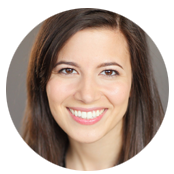
Every year students fight to get the SAT score they want. For many students, completing all the questions before running out of time is a serious challenge. If you're one of those who struggles to finish the test in time, skipping can be a real asset. But how many questions can you skip for a good score on the SAT?
In this article, I’ll let you know how many questions you can skip or get wrong for 1280 out of 1600. I qualify 1280 as a good score since it is approximately between the 81st and 85th percentile for all test-takers.
However, exactly what a good score is for you depends on what college you hope to attend. For guidance on how to determine what SAT score you should shoot for, check out our guide to calculating your target score.
Even if your goal isn't exactly 1280, this guide can help you understand how many questions you can afford to skip to achieve the score you want.
How Is the SAT Scored?
To calculate how many questions you can skip for 1280, you need to know how the SAT is scored. Below, I’ll provide a short explanation, but if you’re interested in reading a more in-depth explanation, check out our guide to how to calculate SAT score.
NOTE: The essay is not factored into your composite SAT score (400-1600 scale), so I will not discuss it further in this article. However, for more information on the new SAT essay, read our other guide.
On the new SAT, there is no penalty for incorrect answers (no minus points), so skipping or answering a question incorrectly results in the same score. You get one point for every right answer since there is no wrong answer penalty, so you should bubble something in for every question. When I discuss skipping in this article, I really mean guessing randomly because you should not leave any bubble blank.
For the Math section, you simply get a raw score, which is just the number of questions answered correctly (if you answered 40 correctly, your raw score is 40).
For the Evidence-Based Reading and Writing section, you get two raw scores: one for the Reading portion and one for the Writing and Language portion. Again, your raw scores are just the number of questions answered correctly.
Each raw score is then converted into a scaled score—the exact conversion varies by test date. However, the College Board provides this example chart from their SAT practice test as an estimate:

Once you convert your Math raw score to scaled score using the conversion chart, you have your final section score. For example, if you got a raw score of 53 in Math, your final section score would be 740.
Evidence-Based Reading and Writing is slightly more complicated. You first need to convert your two raw scores into scaled scores using the chart. For example, if you had a raw score of 44 in Reading and 41 in Writing, your scaled scores would be 35 and 37, respectively. You then take these scaled scores add them together and multiply by ten to get your section score:
(35 + 37) x 10 = 72 x 10 = 720
Now that we have covered the basic scoring, let’s return to the original question.
Bonus: Want to get a perfect SAT score? Read our famous guide on how to score a perfect 1600 on the SAT. You'll learn top strategies from the country's leading expert on the SAT, Allen Cheng, a Harvard grad and perfect scorer. No matter your level, you'll find useful advice here - this strategy guide has been read by over 500,000 people.
Read the 1600 SAT guide today and start improving your score.
How Many Questions Could You Skip/Get Wrong and Still Get 1280 if You Got All of the Others Right?
NOTE: As I mentioned earlier, since there is no penalty for wrong answers, skipping or answering a question incorrectly results in the same score. Therefore, you can skip or answer incorrectly the same number of questions to receive 1280.
Also, as I said before, each test date has a unique conversion scale from raw to scaled score, meaning each test date has a different answer, so the answer to this question is not exact.
To find the typical number of questions you can skip for 1280, I analyzed eight real SAT practice tests and found the number of questions you could skip to get 640 in each section. I put my findings in this table:
| Section | Math | Reading | Writing | Total |
| Test 1 | 15 | 13-14 | 9-10 | 37-39 |
| Test 2 | 18 | 12-13 | 9 | 39-40 |
| Test 3 | 19 | 13-14 | 11 | 43-44 |
| Test 4 | 21 | 11-12 | 10-11 | 42-44 |
| Test 5 | 16 | 10-11 | 10-11 | 36-38 |
| Test 6 | 16 | 11 | 10 | 37 |
| Test 7 | 14 | 11-12 | 9-10 | 34-36 |
| Test 8 | 18 | 9-10 | 9 | 36-37 |
From the above table, the average number of questions you can skip/get wrong to get 1280 is 38. However, it is important to note that the number of questions you can skip/get wrong to get 1280 depends on the section in which you are skipping the questions.
- For Evidence-Based Reading and Writing, you can skip/answer incorrectly on average 9 questions on the writing portion and 12 questions on the reading portion.
- For Math, you can skip/answer incorrectly on average 17 questions between the calculator and no-calculator sections.
REMEMBER, this is if you got every single other question correct, which is very difficult. I don’t recommend you skip this many questions, as you can’t guarantee you get every other question correctly. I’ll explain more about this strategy below.
What Does This Indicate About Skipping/Answering Questions Incorrectly?
If you’re not seeing improvements in your SAT prep and are barely finishing the sections in time, just bubbling in random answers for certain questions may be a better strategy for you. You also can create an exact plan of attack according to your strengths and weaknesses.
For your unique plan, consider what section you are struggling the most in whether it is Math, Reading, or Writing. Try to skip the maximum number allowed in that section. Make sure you always bubble in a random guess for those questions (you’re not penalized for guessing, and if you randomly guess right, you get free points!). Make sure you plan to skip/bubble in the harder questions in that section:
If you struggle in Math, you should know on the Math section that the multiple-choice questions are ordered from easy to hard, and the grid-ins restart with easy questions and then move towards harder questions at the end of the section.
You should try to spend your time trying to answer the easier questions in Math correctly (the beginning questions of the multiple-choice and grid-ins), and consider just bubbling in a random answer for the harder questions (since you’re not penalized for guessing).
Make sure if you use this strategy that you’re answering enough questions to get your score desired score. For example, if you’re aiming for 1280 (640 in Math), I’d recommend answering at least 50 questions and then bubbling in random answers for the other eight questions. This way you give yourself a cushion; you can answer five questions wrong and still get 640.
As I said, answer the easier questions, and bubble in the harder questions (end of multiple-choice) and consider skipping the end of the grid-ins (since you won’t be able to guess on those since they’re not multiple choice).
On the Reading test, you should spend your time trying to answer easier questions correctly and consider just bubbling in a random answer for the harder questions. Make sure if you use this strategy that you’re answering enough questions to get your score desired score. For example, if you’re aiming for 1280 (640 in Evidence-Based Reading and Writing), you can afford to skip five hard questions and just bubble in random answers for the harder questions. If you answered four or five incorrectly, you’d still get a 640.
On the Writing test, you should also spend your time on easier questions first and bubble in at least a few of the harder questions randomly, rather than spending the time to think them through. If you use this strategy, you need to double check that you’re answering enough questions to get your score desired score. For example, if you’re aiming for 1280 (640 in Evidence-Based Reading and Writing), you can afford to skip four hard questions and just bubble in random answers. Even if you answer three or four other questions incorrectly, you’ll still get a 640.

WARNING: You need to incorporate this strategy into your preparation! Do not just plan to skip the day of the exam without practice. In your practice, start by trying to skip/bubbling in randomly the maximum number allowed and see how it affects your score. If the first result is positive, and you see score improvement, simply continue skipping that amount of questions. If at first you get a lower score, try skipping half the number of questions allowed and see how that shifts your score. Keep adjusting until you find the maximum number you can skip to get your desired score.
Focus on getting the questions you do answer right! If your section score is under 500, it’s well worth skipping a substantial chunk of questions.
What’s Next?
Trying to get a perfect score? You should check out our SAT study guide.
Taking the test in the next month and need to improve your score in a hurry? Read our cramming guide.
Aiming for the Ivy League? Read our guide to getting in!












